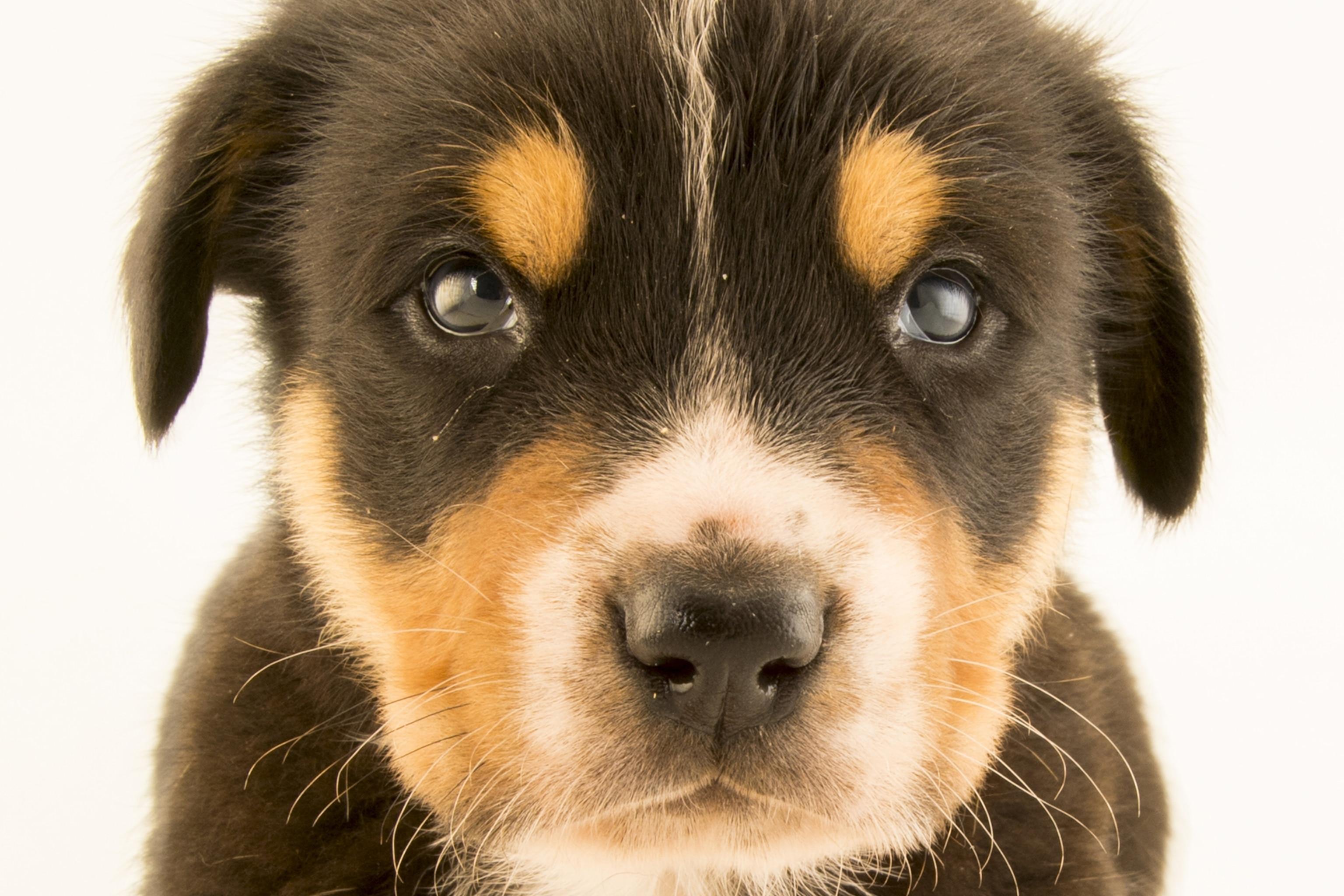Have you ever wondered about the extraordinary abilities of our four-legged companions? Beyond their loyalty and playfulness, dogs possess a remarkable sense of smell that allows them to detect scents far beyond the capabilities of humans. This incredible olfactory power has piqued the interest of researchers and medical professionals alike, leading to groundbreaking studies on whether dogs can actually sniff out diseases like cancer.
In this article, we’ll explore the science behind this amazing ability, delving into how dogs interpret scent, the studies that support their potential role in cancer detection, and what this means for the future of medical diagnostics. Join us as we uncover the fascinating intersection of canine intuition and human health.
Table of Contents
- Understanding the Incredible Sense of Smell in Dogs
- The Science of Cancer Detection: How Dogs Can Help
- Real-Life Stories of Canine Cancer Detection
- Training Dogs for Early Cancer Detection: Best Practices and Recommendations
- Q&A
- In Summary
Understanding the Incredible Sense of Smell in Dogs
Dogs possess an extraordinary olfactory system that enables them to detect scents at levels far beyond human capability. While humans have about 5 to 6 million olfactory receptors, dogs boast a staggering 220 million, allowing them to perceive odors with remarkable precision. This heightened sense of smell plays a vital role not only in their everyday behavior but also in assisting humans in various fields, including search and rescue, drug detection, and even medical diagnoses. Their ability to differentiate between minute changes in scent can lead to astonishing findings, such as the detection of cancer.
Recent research has shown that dogs can identify specific volatile organic compounds associated with certain types of cancer, like lung and breast cancer. They can do so through a process that involves:
- Training: Dogs are often trained using samples of breath or tissues from cancer patients to recognize the unique scent signatures.
- Behavioral Indicators: When a trained dog detects cancer, it may exhibit behaviors such as sitting, staying, or even pawing at the area where the scent is strongest.
- Accuracy: Studies suggest that dogs can achieve up to 97% accuracy in detecting cancer, making them a promising tool for early diagnosis.
| Cancer Type | Scent Detected |
|---|---|
| Lung Cancer | Volatile Organic Compounds in breath |
| Breast Cancer | Cellular byproducts in urine and breath |
| Prostate Cancer | Specific metabolic markers in urine |
The Science of Cancer Detection: How Dogs Can Help
Research has shown that dogs possess an extraordinary ability to detect certain diseases, including various types of cancer. This remarkable skill stems from their highly developed sense of smell, which is estimated to be anywhere from 10,000 to 100,000 times more acute than that of humans. The underlying science involves the identification of specific volatile organic compounds (VOCs) that are released by cancer cells. These compounds can vary depending on the type of cancer and its stage. Through rigorous training, dogs can learn to recognize these distinctive scents and alert their handlers when they detect cancerous changes in biological samples, such as urine, breath, or even skin samples.
Several studies have explored the efficacy of cancer detection by dogs, with some reporting success rates that rival conventional diagnostic methods. Factors contributing to their effectiveness include:
- Enhanced Olfactory Receptors: Dogs have approximately 300 million olfactory receptors compared to humans’ 6 million, allowing them to discern minute concentrations of odor.
- Intuition and Training: Trained dogs can learn to associate specific scents with positive or negative responses, further enhancing their detection capabilities.
- Emotional Connection: Dogs often build strong bonds with their handlers, fostering a collaborative environment that improves focus during detection tasks.
As scientists continue to explore this fascinating intersection of biology and canine training, the potential applications of dogs in medical diagnostics are becoming increasingly recognized. Their unique talents may not only provide early detection of cancer but also enrich the lives of patients and healthcare providers.
Real-Life Stories of Canine Cancer Detection
Across the globe, numerous stories illustrate the remarkable ability of dogs to detect cancer in humans. Maggie, a Labrador Retriever, demonstrated this extraordinary gift when she repeatedly alerted her owner, Sarah, to a suspicious area on her breast. Despite Sarah feeling perfectly healthy, she decided to get checked, only to discover an early-stage tumor that required immediate attention. Maggie’s intuition not only saved her owner’s life but also showcased the profound bond between humans and dogs, highlighting the potential of our four-legged friends as health allies.
Another inspiring tale comes from Max, a golden retriever trained specifically for cancer detection. Working alongside researchers at a prominent cancer center, Max underwent rigorous training to identify specific volatile organic compounds emitted by cancer cells. In a controlled study, he achieved a 93% accuracy rate in detecting breast cancer from samples, outperforming some traditional methods. These success stories underscore the emerging role of canines in early cancer detection, offering hope and companionship in the fight against this disease.
Training Dogs for Early Cancer Detection: Best Practices and Recommendations
- Positive Reinforcement: Use treats and praise to reward dogs for identifying specific scents associated with cancer.
- Consistent Scent Exposure: Familiarize dogs with the cancer-related odors through regular training sessions.
- Varied Environments: Train in multiple locations to help dogs generalize their skills and perform in different settings.
- Health Monitoring: Ensure that dogs are healthy and well-cared for, as physical condition can impact their training effectiveness.
Additionally, a structured training program can enhance a dog’s capabilities and confidence in identifying cancerous scents. A useful approach is to establish a training schedule that includes:
| Day | Activity | Duration |
|---|---|---|
| Monday | Scent Discrimination | 30 minutes |
| Wednesday | Obstacle Course | 45 minutes |
| Friday | Field Training | 1 hour |
This structured approach not only enhances the dog’s detection skills but also fosters a strong bond between the dog and the trainer, increasing the likelihood of success in actual detection scenarios.
Q&A
Q1: Can dogs really smell cancer in humans?
A1: Yes, recent studies suggest that dogs possess an incredible ability to detect certain types of cancer in humans through their sense of smell. These remarkable animals can pick up on specific volatile organic compounds (VOCs) released by cancer cells, which are often present in urine, breath, and even on the skin.
Q2: How do dogs have such a keen sense of smell?
A2: Dogs have an extremely sensitive olfactory system, containing around 300 million scent receptors, compared to about 5 million in humans. This extraordinary sense allows them to detect scents at incredibly low concentrations, making them adept at identifying different diseases, including cancer.
Q3: What types of cancer can dogs detect?
A3: Research has shown that dogs can detect various types of cancer, including breast, lung, colon, and prostate cancer. However, more studies are needed to fully understand their ability to recognize all types of malignancies.
Q4: What is the science behind this ability?
A4: The science lies in the detection of specific VOCs associated with cancerous cells. Each type of cancer can generate a unique biochemical signature, which dogs can learn to recognize. Training dogs to detect these compounds often involves positive reinforcement, allowing them to associate certain smells with rewards.
Q5: Are there any studies supporting this phenomenon?
A5: Yes, several scientific studies have demonstrated dogs’ effectiveness in detecting cancer. For example, a study published in the journal BMJ Open found that trained dogs were able to accurately identify lung cancer in breath samples with impressive sensitivity and specificity.
Q6: Can a dog’s detection lead to early diagnosis of cancer?
A6: While dogs can be incredibly accurate in detecting cancer, their findings are not yet a substitute for medical diagnosis. However, their ability to sniff out potential malignancies could lead to earlier screening and intervention, ultimately improving patient outcomes.
Q7: How can I train my dog to detect cancer?
A7: Training a dog to detect certain smells can be complex and often requires the guidance of a professional trainer experienced in scent detection. However, there are basic exercises you can start with, such as using treats to reward your dog for finding specific scents. It’s important to keep training positive and enjoyable for your furry friend!
Q8: What are the implications of this research?
A8: This research holds great potential for non-invasive cancer screening methods. Incorporating trained dogs in clinical settings could complement traditional diagnostic tools and potentially lead to significant advancements in early cancer detection.
Q9: Are there any limitations to dogs detecting cancer?
A9: Yes, while dogs are impressively accurate, they are not infallible. False positives and negatives can occur, and their detection abilities can be influenced by various factors, including the dog’s training, the cancer type, and the stage of the disease. Therefore, any alerts should always be followed up with proper medical evaluation.
Q10: What can dog owners do with this information?
A10: As a dog owner, you can appreciate the amazing capabilities of your pet and consider supporting research into canine detection of diseases. Additionally, you can stay informed about your health and regularly consult with healthcare professionals about cancer screening and prevention strategies!
In Summary
the remarkable ability of dogs to detect cancer in humans highlights the extraordinary bond between our species and the impressive skills that canines possess. While ongoing research continues to uncover the science behind their olfactory prowess, it’s clear that dogs offer more than just companionship; they may also play a pivotal role in early cancer detection. As we further explore this fascinating intersection of biology and companionship, it’s important to recognize the potential benefits that our furry friends bring not only to our lives but also to our health. Whether you’re a dog owner or simply an admirer of these incredible animals, understanding their capabilities reinforces the importance of fostering this unique relationship. So, the next time you gaze into the eyes of a dog, remember: you’re looking at a partner in the quest for health and well-being. Thank you for joining us on this enlightening journey into the world of canine cancer detection!

















